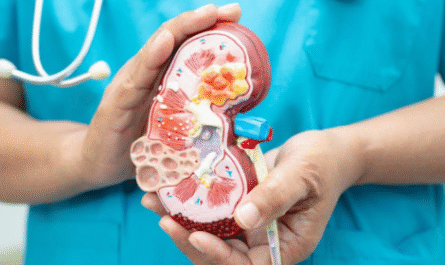Addiction is a complex and challenging condition that affects millions of individuals and their families worldwide. Finding the right addiction treatment center is a crucial step in overcoming substance abuse and achieving lasting recovery. With numerous options available, it’s important to understand what to look for in a treatment center to ensure that you or your loved one receives the best care possible. In this blog, we’ll explore key factors to consider when choosing an addiction treatment center and what to expect during the treatment process.
What to Look for in an Addiction Treatment Center
Accreditation and Licensing are fundamental when selecting an addiction treatment center. Accreditation from reputable organizations like the Joint Commission or the Commission on Accreditation of Rehabilitation Facilities (CARF) signifies that the facility meets high standards of care and adheres to established best practices. Licensing by state authorities ensures that the center complies with local regulations and provides safe, effective treatment.
When considering a treatment center, it’s also important to examine the treatment approaches and programs it offers. Different centers may use a variety of therapies and treatment modalities, including evidence-based practices such as cognitive-behavioral therapy (CBT), dialectical behavior therapy (DBT), and motivational interviewing. Specialized programs, such as those for dual diagnosis or tailored to specific populations like adolescents or veterans, can further enhance the treatment’s effectiveness.
Another crucial factor is the center’s ability to provide personalized care plans. A reputable center will conduct a thorough assessment to create a treatment plan tailored to the individual’s specific needs. This personalized approach should encompass a combination of therapies, support services, and aftercare planning to ensure comprehensive treatment and promote long-term success.
The qualified and experienced staff at a treatment center play a significant role in the quality of care. Look for facilities with licensed and certified professionals, including medical doctors, addiction counselors, therapists, and nurses, who have extensive experience in treating addiction. The expertise of the staff is vital for providing effective, up-to-date treatment.
The range of treatment services offered is also important. Effective addiction treatment often involves multiple stages, including detoxification, rehabilitation, and aftercare. Choose a center that provides a continuum of care, from medical detox to inpatient or outpatient rehab and ongoing support. This comprehensive approach ensures that all aspects of addiction are addressed and that you have the support needed for a smooth transition back to daily life.
Many treatment centers now incorporate holistic and complementary therapies to support overall well-being. These may include yoga, meditation, nutritional counseling, and art therapy. While these therapies complement traditional approaches, they can enhance the recovery experience by promoting a balanced and holistic approach to healing.
The facilities and environment of a treatment center can significantly impact the recovery process. Look for a facility that offers a comfortable, supportive, and safe environment. Whether it’s a serene rural retreat or a modern urban center, the setting should promote relaxation and focus on healing.
Lastly, consider the insurance and payment options provided by the center. Addiction treatment can be expensive, so understanding the financial aspects is crucial. Verify whether the center accepts your insurance and explore coverage options. Many centers offer payment plans, sliding scale fees, or financial assistance to make treatment more accessible.
What to Expect During Addiction Treatment
Once you’ve selected a treatment center, you can expect a structured and supportive environment designed to help you overcome addiction and build a foundation for long-term recovery. The treatment process typically begins with an assessment and intake, where you’ll undergo a comprehensive evaluation to determine the appropriate level of care and develop a personalized treatment plan. This assessment includes medical evaluations, psychological assessments, and discussions about your substance use history and goals.
If needed, you will start with detoxification, a process to safely manage withdrawal symptoms and cleanse your body of substances. Detox is often medically supervised to ensure your safety and comfort during this critical phase of treatment.
The core of addiction treatment involves rehabilitation, where various therapies and programs address the underlying causes of addiction and teach coping strategies. This phase includes individual counseling, group therapy, family therapy, and participation in support groups.
After primary treatment, the center will assist in developing a plan for aftercare and relapse prevention. This includes referrals to sober living homes, continued counseling, and involvement in community support groups. Effective aftercare is essential for sustaining sobriety and achieving long-term success.
As you transition back into daily life, the treatment center will provide guidance and resources for a smooth adjustment. Ongoing support and aftercare are crucial for maintaining recovery and achieving lasting success.
Conclusion
Choosing the right addiction treatment center is a crucial step in the journey to recovery. By considering factors such as accreditation, treatment approaches, personalized care, and financial options, you can find a facility that meets your needs and supports your path to sobriety. Remember that addiction treatment requires a comprehensive and individualized approach to address all aspects of addiction and promote long-term recovery.



